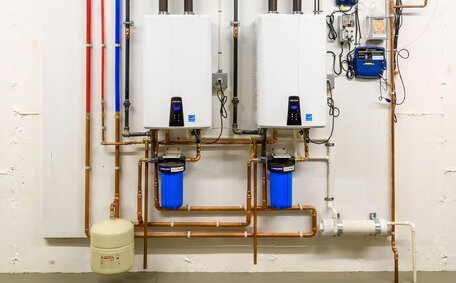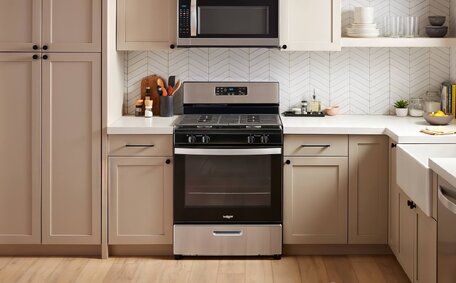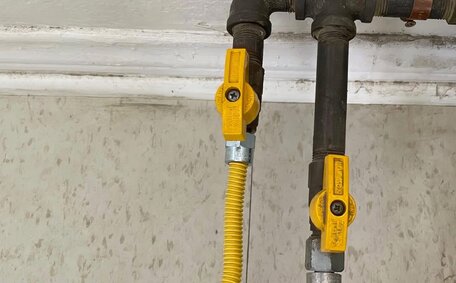
How Hard Water Hurts Hot Water Heaters
Hard water leaves mineral deposits in heaters, pipes and tanks. This limescale reduces efficiency, lifespan and hot water availability. Contact us for affordable water softening solutions.
Read MoreMost houses utilize either storage tank or tankless water heaters for efficient hot water supply. Storage tank heaters maintain a reservoir of hot water to prevent running out during use. Tankless systems heat water on demand as you need it.
For storage systems, an electric heating element or a gas burner warms your water heater, enhancing its efficiency. The temperature in gas water heaters is thermostatically controlled, ensuring you have access to hot water quickly and safely. A tempering valve ensures the heater can blend hot water from your unit with cold water, maintaining a safe output temperature.
The key components for effective water heating include:
A good grasp of your system’s operation can assist you in better maintenance and preventing untimely depletions.
There are several reasons your hot water might be depleting more swiftly than you might anticipate:
Frequent shortages suggest the need for system servicing, warranting a plumber’s consultation.
Over time, minerals in hard water can build up inside, impacting flow and performance. This sediment buildup coats the heating elements, water lines, and can even cause the water heater run out hot less efficiently.
Sediment that adheres to the lower heating element and bottom of the tank acts as a barrier, impacting both heat transfer and flow rate. Additional energy is expended to compensate for the reduced temperature, effectively cutting into the supply of enough hot water. Heating elements also have to work harder and may fail prematurely.
It’s essential to inspect sediment buildup in your water heater tank, as it accumulates with each hour of operation and can limit the system’s lifespan and efficiency. you’ll notice a diminished amount hot water along with any other indicators of system issues:
To prevent sediment buildup, which causes issues such as running out of hot water:
Dealing with sediment buildup in the early stages will improve the efficiency and life span of your hot water system.
As a water heater ages beyond 8-12 years, components that deliver hot water may suffer wear and tear. Degraded parts may risk the delivery of hot water from the top tank, where issues can affect efficiency and reliability.
Key components prone to failure include:
Faulty parts can shorten the duration your water heater provides hot water, leading to a noticeable reduction in availability. You may experience intermittent losses or shortages of hot water at different times of day as components struggle. Replacement of worn parts can restore normal hot water supply.
Signs that key components need replacement include:
If you suspect that your system requires water heater repair, it should be an immediate cue to contact a plumber. Identifying and replacing worn parts early on can add years to the heater’s lifespan.
Selecting the appropriate water heater size is vital to maintaining a consistent hot water supply. As a general rule of thumb, a properly sized 50 gallon tank unit should meet the hot water needs of a family of 4 with typical usage demands.
However, incorrect sizing, sometimes gauged in gallons per minute, can result in an exasperating situation where you run out of hot water unexpectedly:
Besides sizing, overuse can strain your system, depleting the hot water reserves. Your household activities like shower running out of, doing laundry, and the dishwasher, all dip into your limited hot water reserves. Using multiple high-demand appliances at once can quickly deplete your hot water.
Consult a plumber to select the correct system size for your household’s hot water needs. They can advise on usage habits or fixtures like low-flow shower heads to prevent unexpectedly running out of hot water.
Preventative maintenance is key to minimising problems and prolonging the life of your hot water system.
Regularly check and carry out tasks to prevent your system from running out of hot water too quickly:
Furthermore, have a qualified plumber conduct annual tank inspections to:
Routine maintenance can prevent major problems, saving both money and hassle. Investing in routine care ensures your hot water system runs efficiently for years to come.
If DIY troubleshooting does not rectify your hot water problems or you’re unsure about safe handling, it’s wise to call a licensed plumber.
It’s important to involve a qualified plumber when:
Attempting complex DIY repairs can lead to further damage plus voids warranties. Licensed professionals possess the necessary training to accurately evaluate issues, handle systems safely, and provide effective solutions.
The benefits of hiring a professional plumber include:
Don’t hesitate to contact a plumber when hot water issues arise or when a minor issue has potential to escalate. Contact a professional plumber at the first sign of problems for prompt and lasting solutions.
When you’re facing a hot water outage, look to a professional plumber, like the experts at Picnic Point Plumbing, for prompt and reliable service. With more than a decade of expertise, we can precisely identify issues and customize solutions for your specific requirements.
Call us on 1300 349 338 or email jobs@picnicpointplumbingservices.com.au to schedule a consultation. We provide:
You deserve a reliable hot water supply without uncertainty. Our swift, dependable service ensures that competent professionals address your concerns.
Contact Picnic Point Plumbing today - your local and licenced hot water specialists in Sydney.
Hard water leaves mineral deposits in heaters, pipes and tanks. This limescale reduces efficiency, lifespan and hot water availability. Contact us for affordable water softening solutions.
Read MoreIt’s important to routinely check your gas appliances for any issues. Signs of problems include gas leaks, strange sounds, odd smells and more. Have a professional inspect your gas appliances annually and service them regularly for safety.
Read MoreUpgrading your gas meter is a simple process completed by registered technicians. It involves disconnecting your gas supply for 15 minutes to swap the old meter for a new digital smart meter. The upgrade is free and improves accuracy.
Read MorePicnic Point, 2213 NSW
We will call back as soon as possible.




